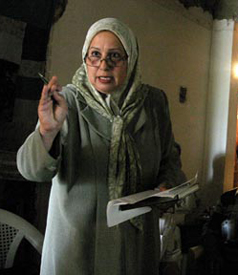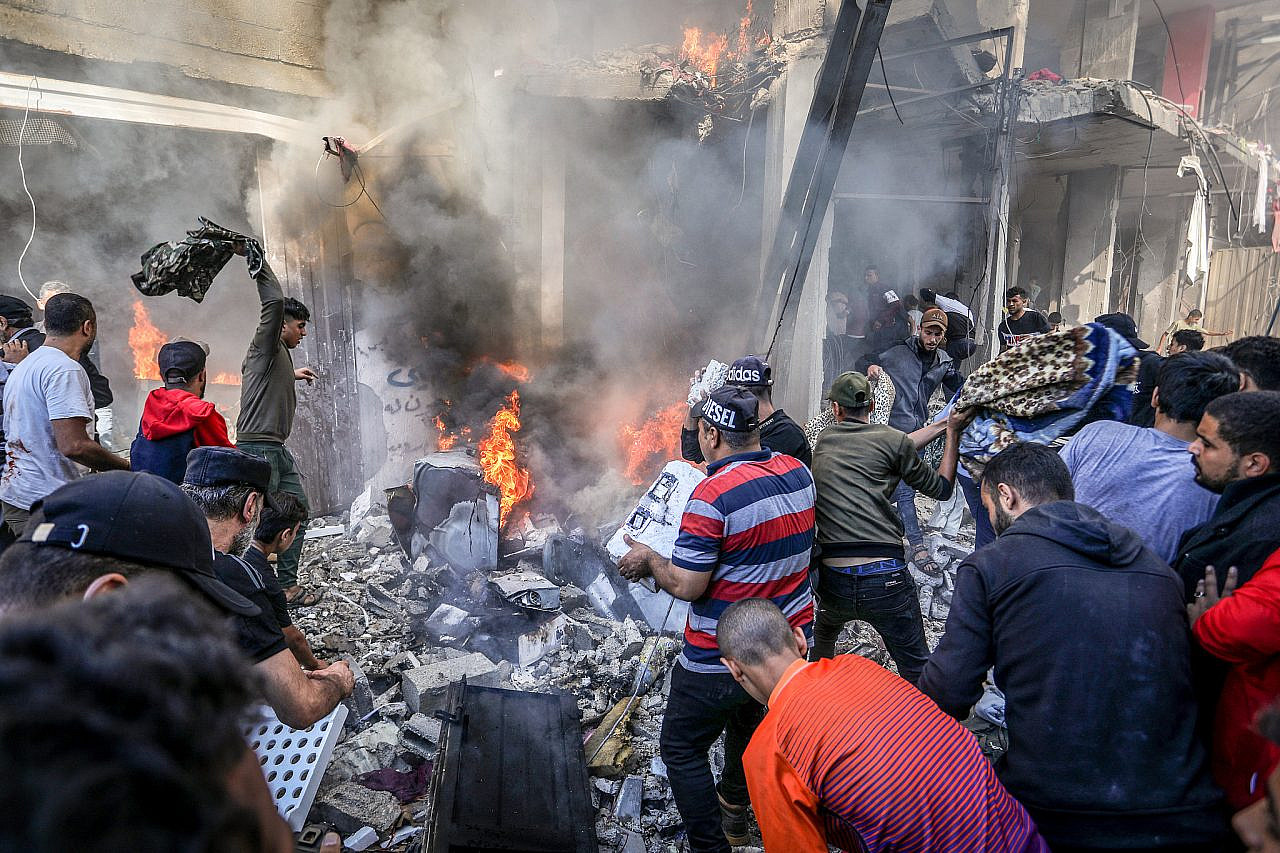 Early in the morning of July 21, police stormed the offices of the Iraqi Electrical Utility Workers Union in Basra, the poverty-stricken capital of Iraq's oil-rich south. A shamefaced officer told Hashmeya Muhsin, the first woman to head a national union in Iraq, that they'd come to carry out the orders of Electricity Minister Hussain al-Shahristani to shut the union down.
Early in the morning of July 21, police stormed the offices of the Iraqi Electrical Utility Workers Union in Basra, the poverty-stricken capital of Iraq's oil-rich south. A shamefaced officer told Hashmeya Muhsin, the first woman to head a national union in Iraq, that they'd come to carry out the orders of Electricity Minister Hussain al-Shahristani to shut the union down.
As more police arrived, they took the membership records, the files documenting often-atrocious working conditions, the leaflets for demonstrations protesting Basra's agonizing power outages, the computers and the phones. Finally, Muhsin and her coworkers were pushed out and the doors locked.
Shahristani's order prohibits all trade union activity in the plants operated by the ministry, closes union offices, and seizes control of union assets from bank accounts to furniture. The order says the ministry will determine what rights have been given to union officers, and take them all away. Anyone who protests, it says, will be arrested under Iraq's Anti-Terrorism Act of 2005.
So ended seven years in which workers in the region's power plants have fought for the right to organize a legal union, to bargain with the electrical ministry, and to stop the contracting-out and privatization schemes that have threatened their jobs.





 The United States will mark the 84th anniversary of the Japanese attack on the U.S. naval...
The United States will mark the 84th anniversary of the Japanese attack on the U.S. naval... In 2021, a book titled “The Human-Machine Team: How to Create Synergy Between Human and Artificial...
In 2021, a book titled “The Human-Machine Team: How to Create Synergy Between Human and Artificial...:focal(1285x1016:1286x1017)/https://tf-cmsv2-smithsonianmag-media.s3.amazonaws.com/filer_public/d1/4e/d14ed238-3b62-4506-9f53-fc2178dade60/nov2025_d17_prologue.jpg) In the fall of 1945, a bit more than six years after Nazi Germany invaded Poland...
In the fall of 1945, a bit more than six years after Nazi Germany invaded Poland... The last plane carrying U.S. forces left Afghanistan on Monday, meeting an Aug. 31 deadline to withdraw...
The last plane carrying U.S. forces left Afghanistan on Monday, meeting an Aug. 31 deadline to withdraw...






























